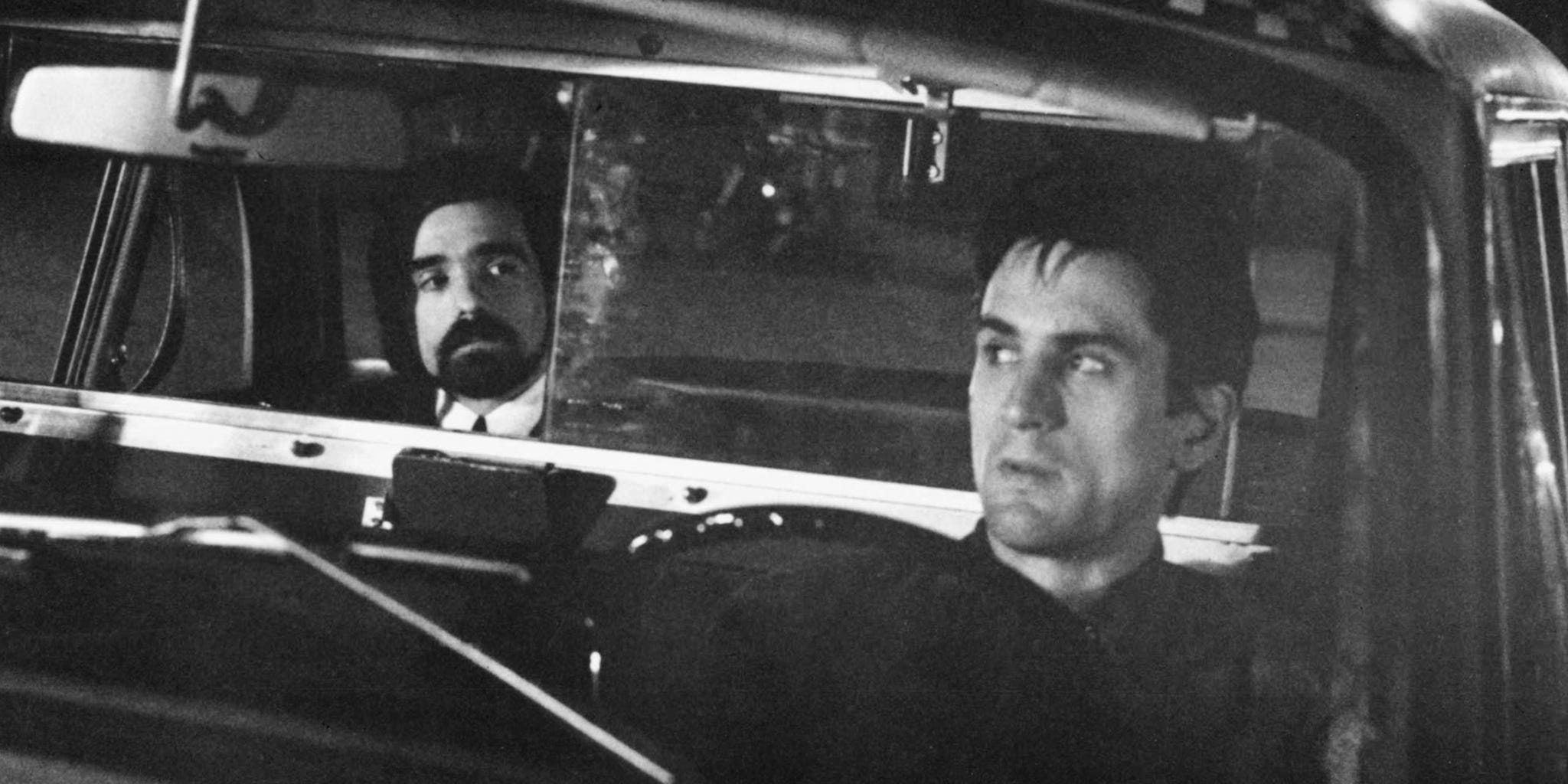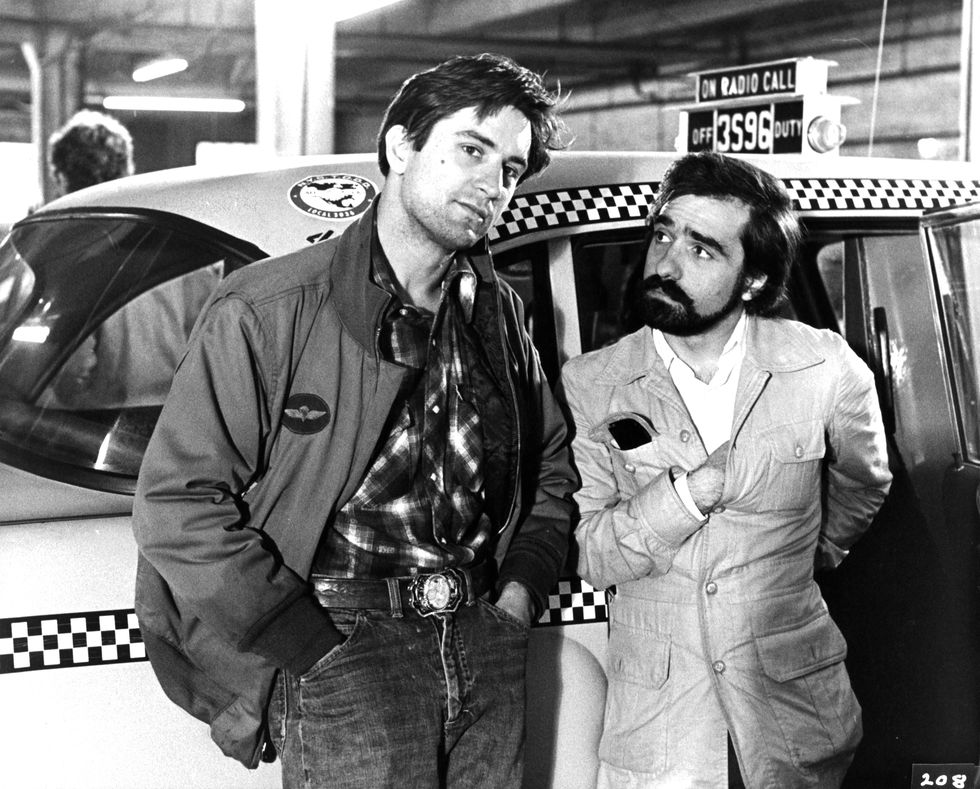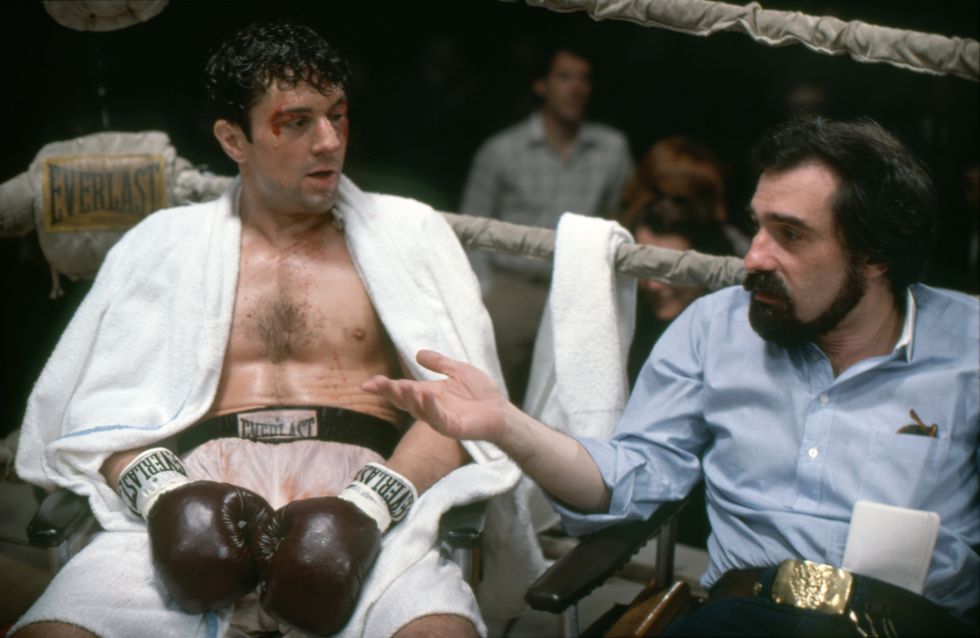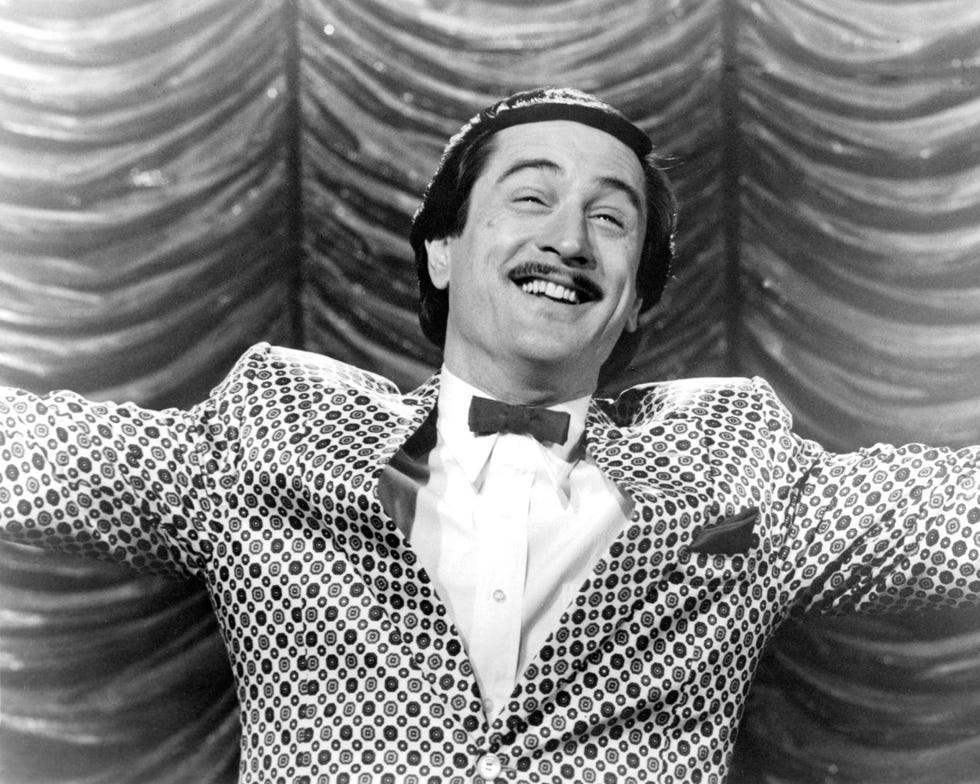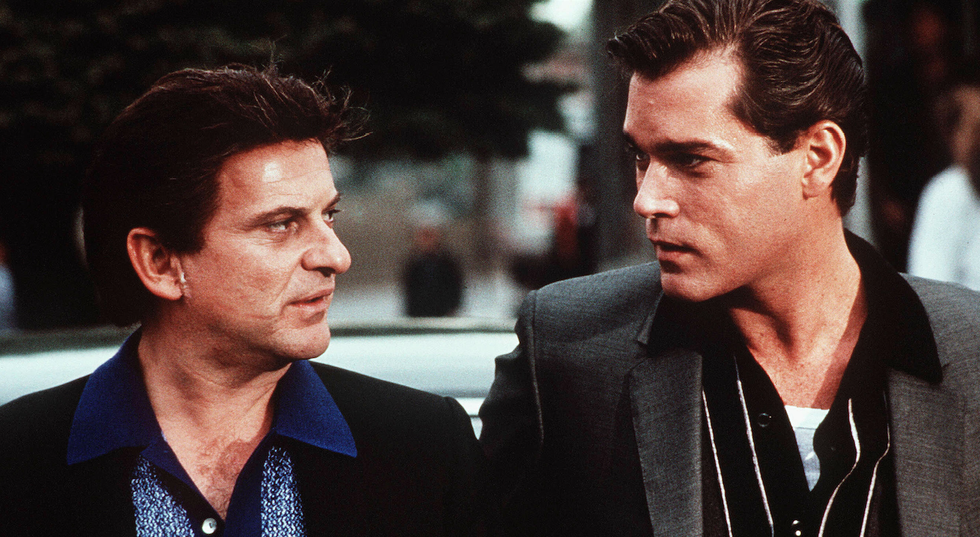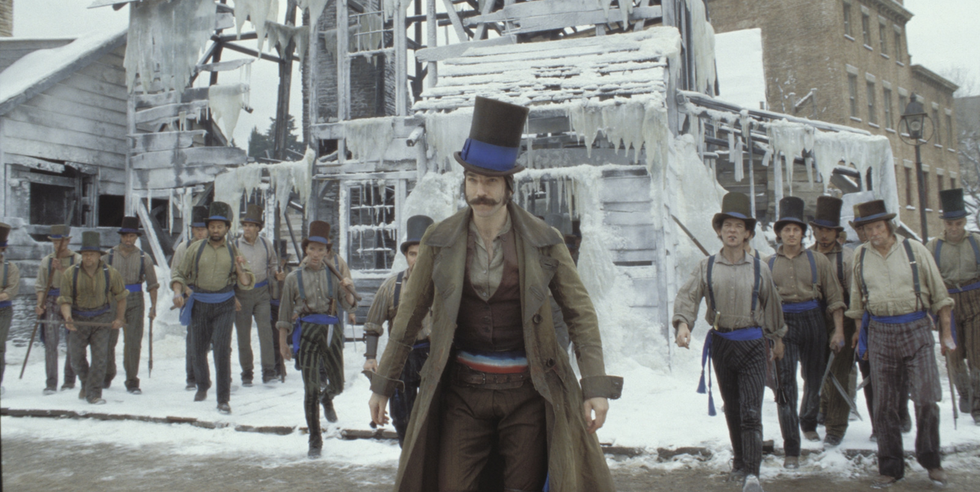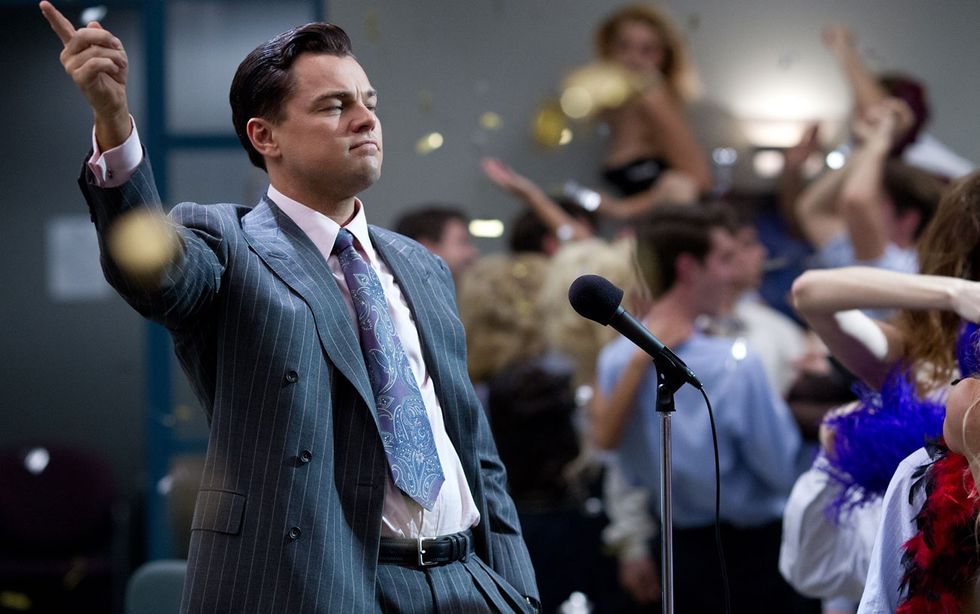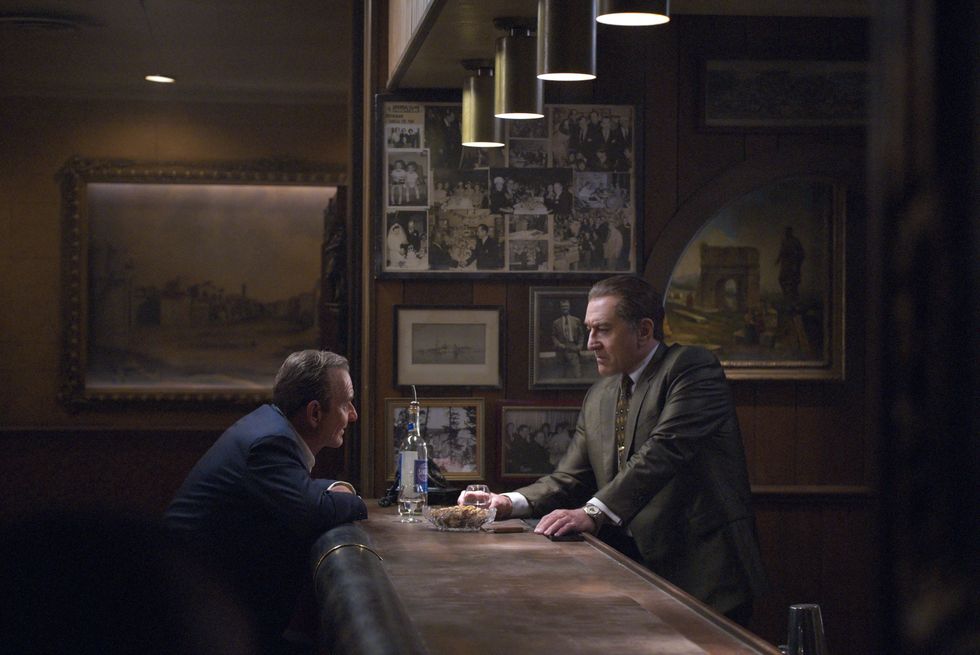"My whole life has been movies and religion," Martin Scorsese once said. "That's it. Nothing else."
Scorsese's turning 79 this year. That's an awful lot of movies and an awful lot of religion. It's a neat little précis, but it's also a little misleading. Like his great hero, the British director Michael Powell, Scorsese is also obsessed with obsession, and with nihilism, as well as crime, violence, how cities work, and what a person has to do to thrive in them. We asked him about the great themes that keep coming up in his work when we spoke to him a couple of years ago.
"How can one be fair? What makes a good man, and also makes a good woman? What makes a good person, you know, and ultimately is that person consumed by everything?"
He's leaned a great deal more towards asking about men rather than women, and as much as Robert De Niro, Harvey Keitel and, later, Leo DiCaprio were his muses and collaborators, there's always New York – he and Spike Lee are the great chroniclers of how the city changed in the 20th century. These are the essentials of Marty's oeuvre.
Who's That Knocking At My Door (1967)
Scorsese's first feature sets up a lot of the things he'd spend the next 50-odd years digging over. Mostly: Catholic guilt. Oh boy, there's a lot of Catholic guilt here. Harvey Keitel is JR, a young Italian-American New Yorker who starts falling for a girl (simply called 'Girl', and played by Zina Bethune) but whose tortured relationship with sex leads him to start tearing it all apart. It's obviously the work of a talented youngster rather than a polished auteur – unsurprising, given Scorsese was 23 when he started making it – but it's a vital, engaging start. The sequence above points to where he was headed: part French New Wave artiness, part pulpy seediness, all Marty.
Mean Streets (1973)
New York in the Seventies was not particularly a happy place. "As a taxi driver on Eighth Avenue, that time was terrible," Scorsese told us in 2019. "Everybody talks about the wonderful 42nd Street – it was horrible! It's bad now with the Disney stuff, but it was really bad then. And believe me, unless you were looking for certain things, like, I'm telling you: it was scary." That side of the city is in full evidence here. Charlie (Keitel) looks out for his wayward kid brother Johnny (De Niro), but when Johnny's waywardness gets a bit out of hand, Charlie is sucked into a face-off with the violent underworld.
Taxi Driver (1976)
The first of Scorsese's entries into the pantheon of 20th century cinema was the point when Keitel was definitively replaced as Scorsese's muse by De Niro. The violent loner scudding along the very bottom of New York's seedy underworld has become a bit of a thing – hello, Joker! – but the power of De Niro's Travis Bickle is in his capacity to scare you with his cynicism, not to seduce you with his high-kicking charisma. Incidentally, the "You talkin' to me?" line was, according to E Street Band sax player Clarence Clemmons, pinched from Bruce Springsteen's stage patter.
Raging Bull (1980)
"Robert De Niro wanted to make this film. Not me," Scorsese once said about Raging Bull. "I don't understand anything about boxing. For me, it's like a physical game of chess." Scorsese's critical stock had slid a little after 1977's New York, New York, and Raging Bull wasn't a raging success, either at the box office or with reviewers. It's a sumptuous, poetic film, which got its monochrome look after Scorsese's mentor, Michael Powell, mentioned De Niro was wearing the wrong colour of boxing gloves for the era. Eventually, Scorsese found a kinship with LaMotta. "You make movies," he later reflected, "you're in the ring each time.
The King of Comedy (1982)
Looking back from here, The King of Comedy is the last of the hot streak Scorsese and De Niro enjoyed in the decade after Mean Streets. It tanked at the box office – it only made $2.5 million of its $19 million budget back – and Scorsese had been hospitalised with exhaustion after turning around three films quickly, but there's a nervous energy and agitation here between De Niro's desperate stalker, Rupert Pupkin, and his idol, the talk show host Jerry Langford, played by Jerry Lewis, that anticipates how we'd come to see the uneasy place where celebrity and real life collide. Plus! There's an bonus cameo by The Clash.
Goodfellas (1990)
Well, obviously. Scorsese had sworn off another gangster film but, having seen a review of Nicholas Pileggi's Wiseguy, he went back to them. Just when he thought he was out, etc. This is Scorsese's complete statement on the underworld and its moralities, and it's also the most perfect synthesis of his influences and the uniquely Scorsese-ish expressiveness he'd been slowly perfecting since Who's That Knocking at My Door. (There's a straight line from that slow-pan sequence up the top to the celebrated bit where Henry walks through the kitchens into the Copacabana.) After a slightly iffy Eighties, this remains the gang saga to top them all.
Gangs of New York (2002)
Another passing of the torch in Scorsese's collaborators: the 20-year De Niro era, which ended with the slightly underpowered Casino, becomes the DiCaprio era. The forging of America, this film says, didn't just happen out on the vast, open, John Ford-shot plains. It was in the claustrophobic cities which were in a state of near-revolt. Ten Oscar nominations turned into zero wins. You could be forgiven for thinking that Scorsese went on holiday between Goodfellas, Casino and Gangs of New York, but his Nineties output is both wildly eclectic and generally really good – the romantic drama The Age of Innocence is particularly unexpected and excellent.
The Wolf of Wall Street (2013)
Reminder: Jordan Belfort is not a hero. It's a slightly grim irony that the most recent Scorsese-DiCaprio collab has mutated from being an indictment of the kind of society which allows such rampant corruption – both financial and moral – to take root, and into a series of gifs people use when they want to imply how fun it is being incredibly wealthy. Which, you know, it probably is, but it's not what The Wolf of Wall Street's about. Scorsese's telling of Belfort's rise and precipitous fall does luxuriate in his ill-gotten excess, but there's a message underneath it all too: scary as De Niro and Joe Pesci might be, the gangsters you really want to be wary of are the ones on the stock floor.
The Irishman (2019)
After his passion project Silence (2016) arrived to an appropriately quiet response, Scorsese got the old Goodfellas and Casino gang back together for one last job, plus Al Pacino operating at 100 per cent Shouty Pacino capacity: all hmms, hahs, and muthafuuuuuckas. As funny and lively as it is, it ends up a wintry, downbeat piece about the wreckage that the men his films have always focused on leave behind them. "The bottom line is we all die alone," he told us in 2019. "So we gotta face it. You know, maybe fast, maybe slow – we go alone."
Like this article? Sign up to our newsletter to get more articles like this delivered straight to your inbox
Need some positivity right now? Subscribe to Esquire now for a hit of style, fitness, culture and advice from the experts
